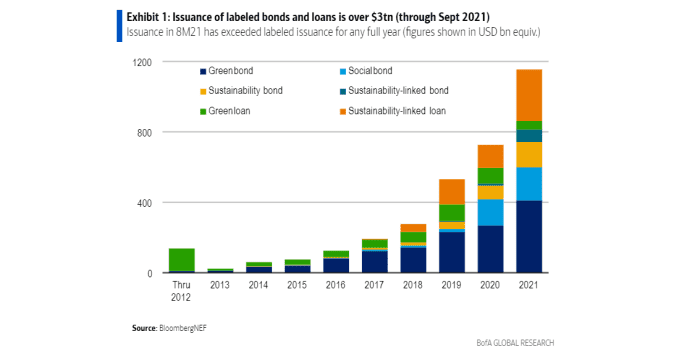Ford Motor Company raised $2.5 billion in the U.S. corporate bond market on Monday to fund green projects in the wake of Friday’s roughly $1 trillion infrastructure deal.
The F-150 maker said it plans to use proceeds from its 10-year financing exclusively to fund its clean-transportation projects, including to design, develop and manufacture its suite of battery powered vehicles, in a public filing Monday.
Pricing on Ford’s F, -0.26% bonds, rated BB+ by S&P Global and Fitch and Ba2 by Moody’s, narrowed to 3.25%, after circulating earlier in the 3.625% area, according to a person with direct knowledge of the dealings.
That indicates strong demand for the auto maker’s debt as it shifts to making electric vehicles. It also has been working to buy back up to $5 billion worth of its debt issued at loftier yields in 2020 after its credit ratings were cut to “junk,” or below investment grade, at the onset of the pandemic.
President Joe Biden over the weekend hailed Congress’ passage on Friday of his pared-down infrastructure package PAVE, +0.70%, after months of internal wrangling in a Democratic-run Congress.
The deal includes funding to bolster the nation’s roads, bridges, rails and internet infrastructure, but also $7.5 billion to build out electric-vehicle charging stations. That gave a big boost on Monday to shares of ChargePoint Holdings Inc. CHPT, +4.44%, EVgo Inc. EVGO, -1.72% and Volta Inc VLTA, +13.48%.
Read: Here’s what’s in the bipartisan infrastructure bill — and how it’s paid for
Apartment REIT AvalonBay Communities Inc. AVB, -0.00% also looked to raise $350 million for seven years on Monday to help fund new or existing eligible green projects.
The latest batch of green bonds come as Corporate America makes a big push to borrow ahead of Thanksgiving. Wall Street expects 2022 to be another banner year for borrowing, even as the Federal Reserve starts to reduce its monetary aid.
See: Corporate America’s borrowing binge seen barely slowing as Federal Reserve tapers
“It’s a great market for anyone looking to refinance at the long end,” said George Cipolloni, a portfolio manager at Penn Mutual Asset Management, in a phone interview.
But with U.S. inflation running high and 10-year Treasury rates TMUBMUSD10Y, 1.566% below 1.5%, it’s also “really hard for long-term investors,” Cipolloni said. “As an investor, I would love interest rates to go up.”
This year, $1 out of every $10 of global inflows has gone into designated strategies to address environmental, social and good governance (ESG) practices, according to analysts at BofA Global.
What’s more, bond and loan issuance in the sector already has topped $3 trillion in roughly the past decade, with green bonds leading the way.

ESG bond issuance tops $3 trillion.
BofA Global, Bloomberg
Alex Brazier, deputy head of the BlackRock Investment Institute, and his team wrote that “climate risk is investment risk, and the narrowing window for governments to reach net-zero goals means that investors need to start adapting their portfolios today,” in a note Monday.
Ford didn’t immediately respond to a request for comment.